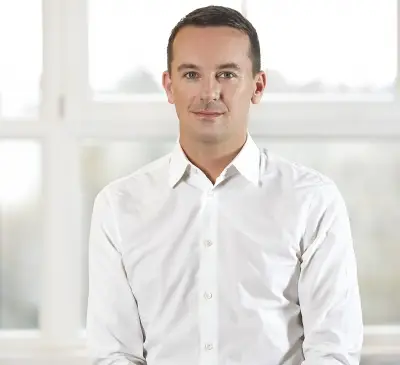“Not like that!” – was the message sent at the polls during Germany’s 2017 Bundestag elections.
The results of the Bundestag election and each party’s turnout can be seen here. In addition, we’ve provided you with a timeline about the next steps.
The Germans did not elect a manifesto, person or vision. They voted to reject the “Grand Coalition” as a permanent form of government. As a form of politics without debate and without opposing poles and opinions. Germany’s so-called “people’s parties”, the CDU / CSU and the SPD, have lost their people. The small parties have benefitted including the extremist ones.
In a Germany that, when viewed from the outside, is powering ahead as an economic driver, the party “Alternative für Deutschland” (AfD) has scooped up all those who feel abandoned, frustrated and fearful ‒ without having to offer a real alternative. Nearly 13 percent of the voters no longer feel represented by the democratic parties in Germany. Their motivations and goals could not be more different, but their shared message is clear: democracy needs choice. And in the last few years this seems to have gradually gone astray in Germany.
Last night, the established parties were taught a lesson. However, whether Angela Merkel can react to this in the short term is questionable. Now that the former SPD-coalition partner has already returned to the opposition, her CDU/CSU-party faces the challenge of having to form an alliance with the Liberals and Green Party.
One thing is clear: this cannot succeed without Merkel’s calming hand. It is also clear, however, that from today on many other hands will be fervently setting to work on engineering a future post-Merkel.
The bottom line:
The seven most important facts concerning the election results
1. From four to six: The 19th German Bundestag is much more fragmented and will now include representatives from six parties.
2. The two major parties are jointly weaker than they have been for six decades. The edges are continuing to fray.
3. The Conservatives achieved their worst result since 1949. Nevertheless, Angela Merkel has once again won the mandate to form a government.
4. Support for Germany’s oldest democratic political party (SPD) has collapsed, reaching its absolute historical low since the Second World War. It now wants to lead the opposition in the German Bundestag.
5. The winner on election night: The far-right nationalist party “Alternative für Deutschland” (AfD).
6. The second winner is the FDP: After four years of forced abstinence, the Liberals have made it back into parliament.
7. Die Linke (The Left party) remains stable, but still has no chance of joining the government ranks.
Coalition (im)possible: Jamaica
The only possible coalition at the moment: Jamaica. A term used in German politics to describe a coalition made up of the Christian Democratic Union party, the pro-business Free Democrats and the environmentalist Green party. The name derives from the fact that the colors symbolize the three parties involved – black for the CDU, yellow for the FDP and green for the Green party which make up the colors of the Jamaican national flag.
However, as these parties differ greatly on many key issues, such a coalition would be at best clumsy and at worst unworkable. The parties disagree tremendously in their attitudes towards climate protection, immigration fiscal and social policies. There is still hardly any experience at the regional state level as to how Jamaica could work. The very first coalition of this kind has only existed in Schleswig-Holstein for three months.
The next few years won’t be sweet
2017’s election was neither shiny nor exciting. The consensus throughout the German “Wahlkampf” (campaign) was that this ballot was boring. Due to her calmness and pragmatism Angela Merkel will remain Germany’s chancellor but the inclusion of the far right in Parliament will make German politics louder and nastier.
Meanwhile, Germans started using the hashtag #87prozent (87 percent) on social media to highlight the percentage of voters who did not cast ballots for the far-right. Thousands gathered on the streets last night in big cities and protested the AfD’s success in the election.




